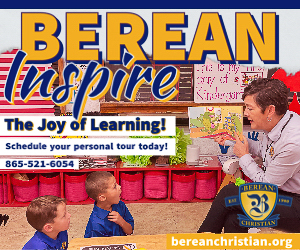We’ve all heard it: so-and-so is just trying to “keep up with the Joneses.” And, if we are being honest, we all have probably, at some point, tried to keep up with them too. But here’s the thing: the Joneses are a fictional, exceptionally wealthy family that we have never seen. We don’t even know what they have or who they are.
 So, why keep up with mythical people, especially when our society is drowning in debt?
So, why keep up with mythical people, especially when our society is drowning in debt?
As parents, it is our responsibility to help our children grow to be strong, healthy, well-balanced, and happy individuals. However, we often neglect to teach financial responsibility. When we lack implementing this critical training into parenthood, we leave wide gaps — like Grand Canyon-wide gaps — in their preparation for the future. Let’s face it: kids will eventually learn money, how to spend it, and what they want to spend it on. Unfortunately, without intentional guidance, their teachers become social media, friends, and possibly even the Joneses. Why is this bad?
I am going to be incredibly real. I love social media. I can see pictures and funny stories from my friends who live all over the country and the globe. I can share pieces of my life with family who I don’t get to see very often. It’s fun. It’s an easy read, but do you know what else it is? Social media is a monster. There I said it; a monster. It doesn’t live under your bed or come out in the dark. It’s blatant, right in your face blatant. Why? Because everyone only posts the beautiful parts of their lives. The trips, the new cars, the house, the perfect kiddos, perfect relationships, outfits, and, and. We even have filters that make our perfect images even more unrealistically gorgeous. Kids see this as reality. Some adults do too. Queue the Joneses.
We start to believe we have to match what we see on social media. And our wants — without any warning — suddenly outweigh our means. And worse, we often act on our urges to be what we see, not realizing that what we see may not be reality. Don’t get me wrong; some people can live that life and I commend them if they’ve worked hard to achieve it. Hard work pays off. I simply want to focus on teaching our children that money is not necessarily the only conduit to happiness. Plus, how do we know if the Joneses are happy? What if they’re in debt? The keys to happiness are much more straightforward. Planning and saving for the future, living debt free, and not stressing over every penny — that’s the life!
 Let me give you an example. Before writing this, I did some general research on influencers. Yes, the ones our kids — and many of us — like to follow. Let’s zoom in on L.A. and New York. Did you know that there are social media influencers who buy empty designer shopping bags to look rich? In addition, many online resources allow people to rent luxury. And, surprise, people do it!
Let me give you an example. Before writing this, I did some general research on influencers. Yes, the ones our kids — and many of us — like to follow. Let’s zoom in on L.A. and New York. Did you know that there are social media influencers who buy empty designer shopping bags to look rich? In addition, many online resources allow people to rent luxury. And, surprise, people do it!
Now, stop right here. In your tracks. Stop. Ask yourself one critical question. Actually, ask yourself three. Do I try to chase the Joneses? Do I live within my means? Am I setting a good example for my family, specifically my children?
Because here is the thing, parents: whether or not we are deliberately teaching our children the importance of financial education, we are indeed teaching them by our actions. They are more likely to live in debt if we live in debt. If we swipe our credit cards to appease the urge to have more, they are watching and will likely follow suit. Teach your kids to save. Teach them the value of a dollar and work ethic. Teach them that some of the best joys in life are not things. Equip them with a solid financial foundation so that when they go out on their own, they will be so secure in who they are that they will just let the Joneses be the Joneses.


















